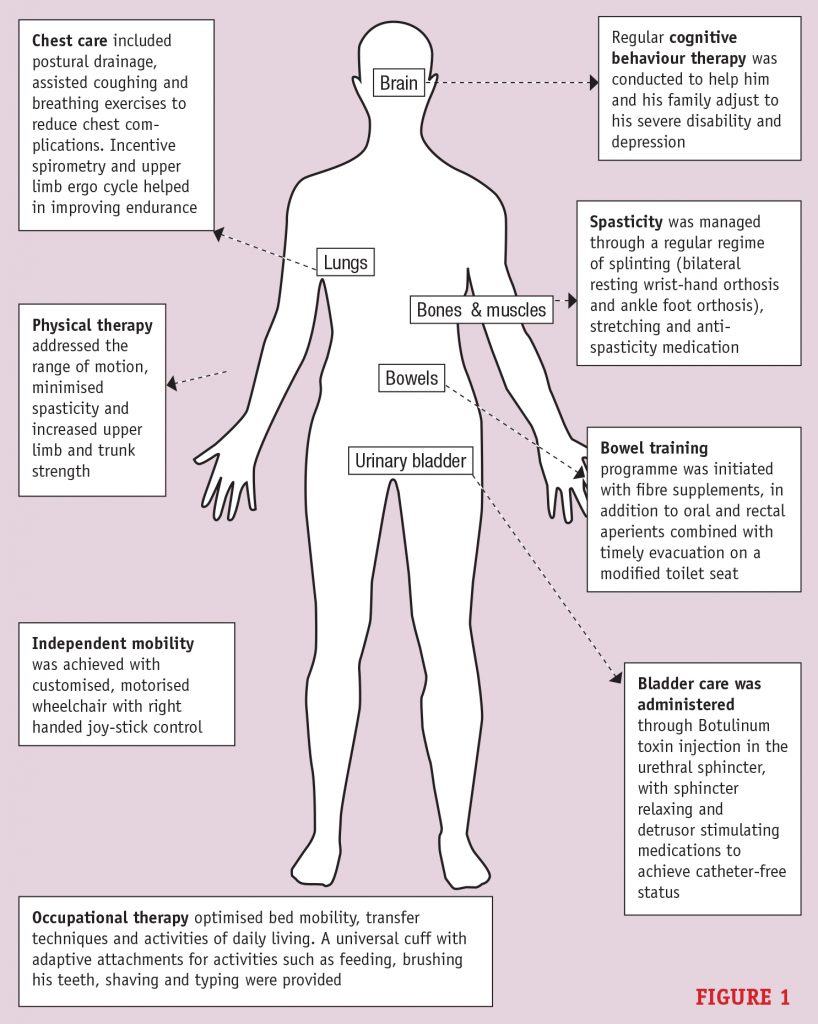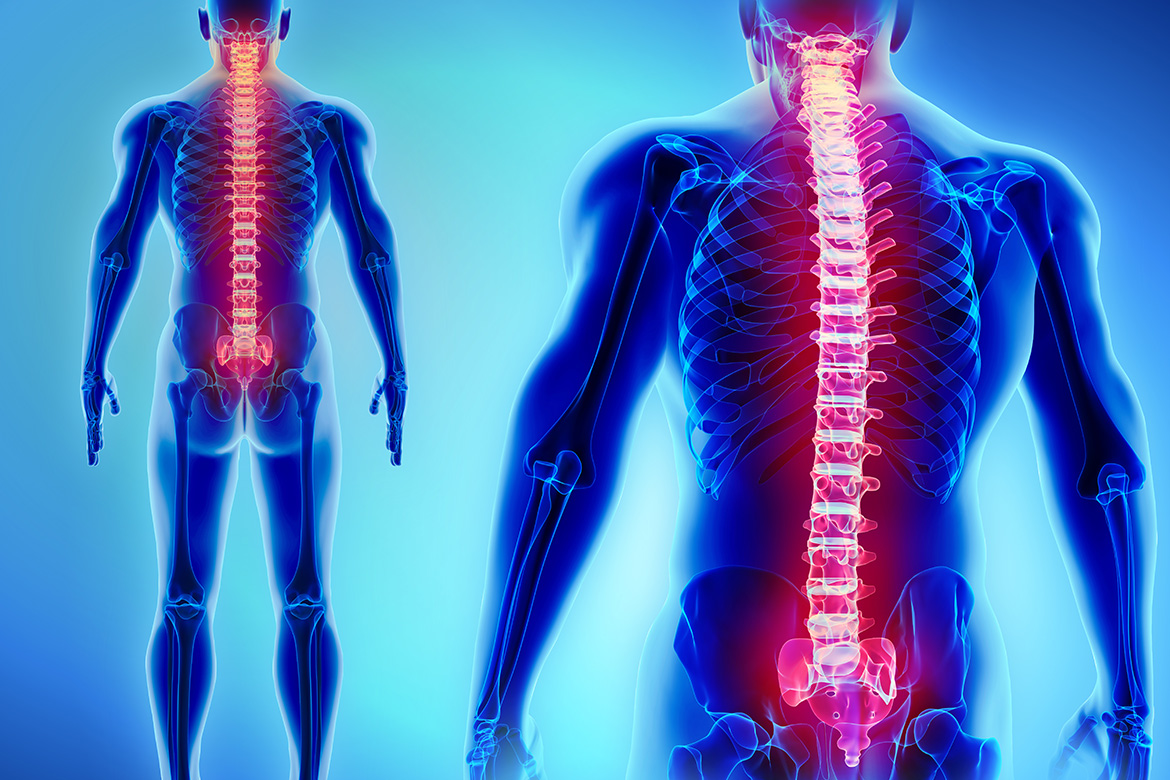Rehabilitation is a collective, collaborative exercise and impossible without support from all clinical departments. It involves multidisciplinary approach by looking into each individual’s special needs. It requires physical therapy, in association with cognitive therapy, bowel and bladder training and, of course, mobility training
22 year-old man was admitted within two hours after an accidental fall in a swimming pool. He had suffered injuries that resulted in his inability to move his arms and legs. Cervical imaging showed a C4-5 burst fracture with cord contusion and canal narrowing at the same level.
Neurological examination within the first 72 hours revealed a complete (classified as C5 ASIA-A) quadriparesis, with loss of all activities below the level of the lesion and no sparing of anal sensations. He underwent spinal stabilisation, followed by comprehensive multidisciplinary inpatient rehabilitation programme led by our Rehabilitation Medicine specialist to address the multiple deficits in muscle strength and tone, sensations, self care, mobility, endurance, bladder and bowel continence.
To assess his potential for sensory-motor recovery, a functional MRI was done. It revealed activation in the motor cortex with finger tapping tasks and no response to leg tapping tasks. Somato-sensory evoked potentials in the lower limbs showed weak response—this also suggested severe posterior column dysfunction.
This patient’s rehabilitation had to be undertaken at multiple levels and involved working on a number of different organ systems by various specialists as shown in Figure 1.

A house visit was undertaken to address access issues. Modifications were carried out in his house—the bathroom and the bedroom were made wheelchair-friendly. Outdoor mobility was achieved through a van, a customised ramp and a lift system to transfer the wheelchair in and out of the van. After discharge, the patient continued with outpatient mobility and ADL (activities of daily life) training programmes to support his ongoing functional and neurological recovery.
One year after the injury, he is independent in sitting position, mobile on customised wheelchair and supports his father in their family vocation by supervising work at various sites.
The Rehabilitation Team at Kokilaben Dhirubhai Ambani Hospital, led by our Rehabilitation Medicine consultant, supervised the patient’s multidisciplinary inpatient rehabilitation programme in coordination with other medical and paramedical staff to achieve the desired functional recovery.
Though we wish that such an untoward incident hadn’t occured, we are proud that our rehabilitation team handled the case in a way which helped the patient stay mobile.
 Back to Site
Back to Site